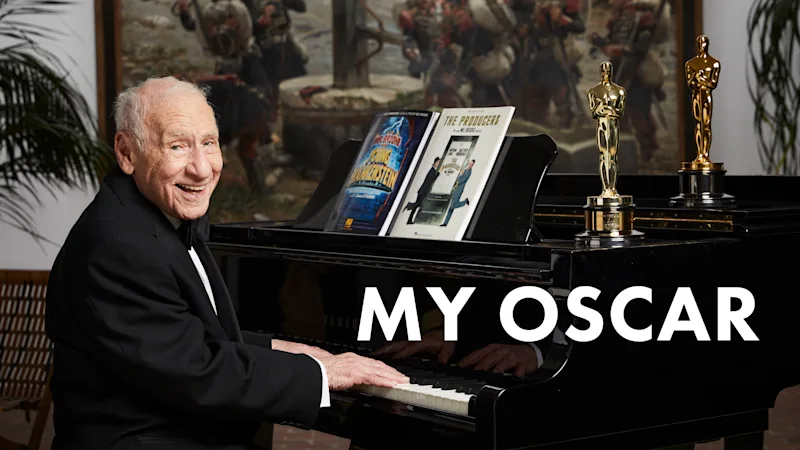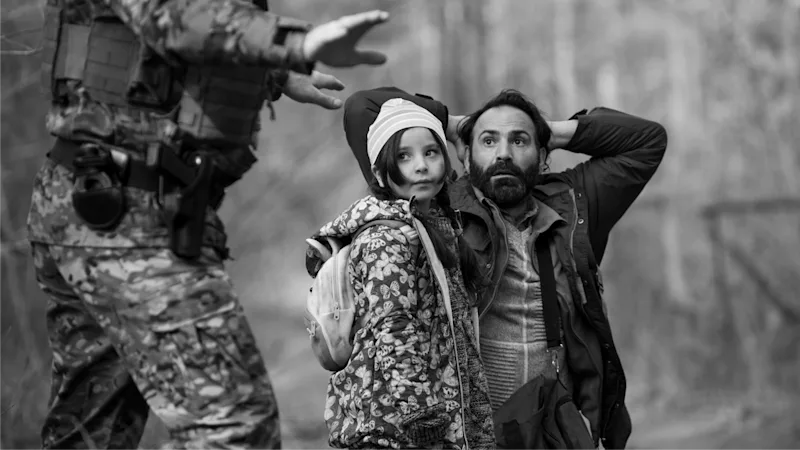After five years of working, developing, deal making, scheduling, shooting and editing; after weeks of generating audience interest and the good fortune of positive pre-release press, The Way Back finally opened in theaters on March 6. It was gone a week later.
As businesses everywhere shuttered in response to the coronavirus crisis, theaters went dark, taking The Way Back and other new releases with them.
But Warner Bros. is resurrecting the film by making it available online this week, much to the delight of producer Jennifer Todd, who worked on The Way Back from its earliest days.
“I was so happy when the studio called to say they were putting it online,” Todd says. “Because obviously it was sort of devastating to come out in theaters and then be gone. But I’m so happy because I feel like it will really get seen.”
It’s certainly one of the more unexpected experiences in Todd’s 25-year career — and she was a producer of the Oscars the year of the best-picture mix-up.
Even when one of her films is derailed by a global pandemic, then surprisingly rescued when its studio goes streaming, Todd is unflappable. Steady, optimistic and forward-moving, she embraces a “show must go on” energy, just as she has since she was a kid.
Most people don’t quite know what a movie producer does. Todd’s 11-year-old son still doesn’t: “I don’t really understand what you do,” he told her. “I know you talk on the phone a lot.”
But Todd knew from an early age that she wanted to produce. Her friend’s parents were TV producers, so she had some idea about the work. When Todd was in high school, she wrote in her senior letter that five years after graduation, she expected to be producing film and television.
“I always joke that I’m not skilled to do anything else in life,” she says.
Todd followed her sister (and future production partner) to USC Film School, where her first job affirmed she belonged in show business. She was an assistant to Anthony Perkins on a film he was directing called Mr. Christmas Dinner (ultimately released as Lucky Stiff in 1988), where Todd eagerly learned from the Psycho star — and everyone else on set.
“Every department kind of borrowed me because I was a young, hungry 18-year-old. By the time the movie was over, I was like, ‘These are my people. This is where I want to be with my life.’ I just loved every bit of it.”
A job with legendary producer Joel Silver came next, where she worked on films like Lethal Weapon 2, Die Hard 2 and Hudson Hawk. With that experience, she got her first production credit in 1995. Two years later, she released Austin Powers: International Man of Mystery, followed by the rest of the Austin Powers trilogy.
Todd has made almost 20 films since, including Memento, Alice in Wonderland, Across the Universe, Must Love Dogs, Jason Bourne and The Way Back.
She might have as many as 30 projects percolating at once in various states of development, from a recently optioned book that needs a screenwriter to a TV series formulating its episode list.
“What’s challenging for producers, always, is moving the rocks up the hill every day,” Todd says. “Making sure you’re like: OK, this project needs a little love. This one needs a little love. This one I’m waiting to hear back from the studio on because I need their notes before I can do anything else. It’s a lot of managing — that’s why I think women, actually, make great producers, because it’s so much multitasking.”
When she was invited to join the Academy in 2006, it was like getting into Harvard: “You have a moment where you can give yourself a ‘Wow, I must have made it, at least this far!’”
Even after years of membership, “it still has the fairy dust,” Todd says. “You see how meaningful it is to everybody, to anybody, from your favorite filmmakers and actors to crafts people — it has that gravitas to it.”
Being part of the Academy led to her first live-TV gig, for a little show called the Oscars.
Todd casually mentioned to Academy chief Dawn Hudson that she’d love the opportunity to work on the show one day. “I thought she would maybe call me in 10 years,” she says.
But it wasn’t long before she and longtime colleague Michael De Luca were tapped to put on the show, a thrilling challenge that brought on Todd’s first panic attack — and this was before the now-historic envelope gaffe at the end of the 2017 show.
The night before, after hours of nonstop rehearsals, Todd crumpled in her hotel room, racked with anxiety. She remembers feeling like she had just planned a wedding that everyone she knew and loved would be attending the next day.
“I’m going to be judged by the people I care about the most: my peers, people I aspire to be in the movie business, they’re all going to be watching this or sitting in it,” she says. “And it hadn’t really occurred to me until the night before.”
Then it was showtime, and everything went according to plan — until the final award. That’s when Warren Beatty and Faye Dunaway presented the best picture prize to La La Land instead of the real winner, Moonlight.
“My mind couldn’t catch up with what was happening. I felt like I was under water. I was in shock.”
Now, years later, the flap doesn’t feel so Earth-shattering. “That happens in history,” she says matter-of-factly.
She and De Luca returned to produce the telecast the following year in celebration of Oscar’s 90th birthday. Todd still gets a warm glow on her face when reflecting on that show.
“We did a reel for the 90th which I just thought was so beautiful,” she says. “I still watch it from time to time just for inspiration.”
Since producing the Oscars, Todd has become a governor of the Academy’s producers branch, where she works to identify and recruit emerging international film producers to join the organization’s ranks. While putting on the Oscar show was an exhilarating honor, Todd says, she’s not sure about a three-peat.
“I wouldn’t trade it for the world,” she says. “I don’t know that I could do it again, but I loved it.”
Besides, producing live television is nothing like producing a movie, apart from the multitasking and management of personalities required. Working on a live show builds to a crescendo where everything happens — it airs then it’s over.
“Everything in movies takes forever,” Todd says. “I work on them for years. So you never really have that one-moment thing.”
That’s why it’s so gratifying to see The Way Back get another chance to connect with audiences. The film took years to make.
Todd started working on it five years ago with star Ben Affleck. They both loved the script, as did director Gavin O’Connor (The Accountant). Todd finagled everyone’s schedules and found ways to make the film for a modest budget, shooting in LA and qualifying for production rebates. Affleck opened up in intimate interviews about his personal connection to the material: a middle-aged alcoholic trying to redeem himself for squandered promise.
All for one weekend in theaters.
“To make an adult-driven drama for the theater? I’m sure this is the last one I’ll ever get to make,” Todd says wistfully. “It seems pretty rare, because people watch those on TV, right? That’s what you look to Netflix and HBO and Showtime for.”
Todd is someone who loves going to the movie theater. She even watched Netflix releases like Marriage Story and The Irishman on the big screen.
“I know, personally, the different emotional experience I have getting to watch a movie in a theater versus at home, no matter how big your screen is,” she says.
But these are unprecedented times.
“I’d still rather have people get to experience it,” she says of The Way Back. “This is an intimate, emotional movie, so it’s perfectly fine to see it at home.”
Todd has always loved her job, but she feels especially grateful now to be part of the community bringing entertainment and escape to a distressed and quarantined populace.
“It’s a beautiful, very lucky thing that we get to work in entertainment. In times like this, you’re reminded how important it is to give people something to do and distract themselves by.”
And what else is there to do but watch movies?
“You really have no excuse,” Todd says. “You’re trapped.”
By Nadine Zylberberg






